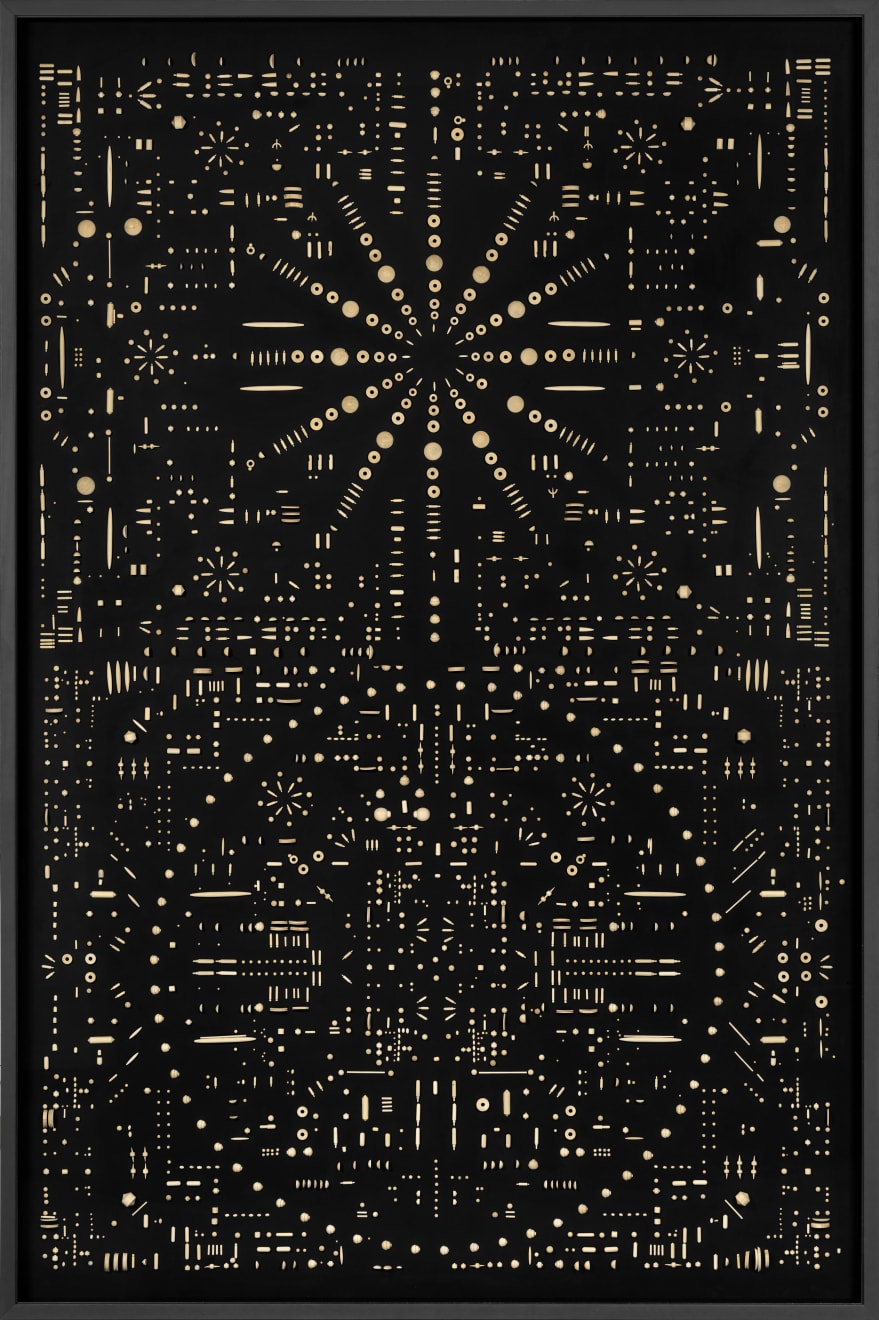Natasha Preenja
Hymns for Mothers 3, 2025
Turn wood pieces on laminate
(HSN Code: 970300)
(HSN Code: 970300)
72 x 48 inches
Copyright Natasha Preenja, 2025
Natasha Preenja began engaging with traditional toy artisans from Etikoppaka, a coastal village in Andhra Pradesh, merging ancient turn-wood craft techniques about 15 years ago. Through sustained observation and practice,...
Natasha Preenja began engaging with traditional toy artisans from Etikoppaka, a coastal village in Andhra Pradesh, merging ancient turn-wood craft techniques about 15 years ago. Through sustained observation and practice, she has come to understand how intimately women's lives are interwoven with this form of making. The act of turning wood on a lathe—measuring precisely, with sharp blades, their tools shape each piece with care.
These practices occur within the rhythms of domestic life, often accompanied by thoughts of children, acts of caregiving, and household responsibilities. This domesticated mode of production, situated within the home or small workshop, has a complex intersection of labor, gender, and care. It is through these embodied rituals that a small-scale industry is sustained, one rooted not only in economic necessity but also in intergenerational knowledge with the material legacy.
As the language of the craft evolved, so too did Preenja’s desire to push beyond the limitations of traditional toy figurines. She sought to build upon its meditative qualities while expanding its expressive potential. These large-scale works are composed of over thousands individual components, each meticulously crafted by hand. These fragments function as a kind of vocabulary for the artist: the material equivalent of words used to compose a song, a poem, an essay, or even a letter to our mothers. These silent, repetitive rituals have become the foundation of Preenja’s practice—acts of making through which she listens, learns, and absorbs.
Further, the word ‘hymns’ refers to songs of praise or devotion, often within a religious or spiritual context. Highlighting the everyday, domestic labor of mothers—often overlooked or undervalued—to something sacred and worthy of reverence. It frames their life work, as a form of worship or ritual, aligning with the meditative, repetitive acts of handcrafting.
These practices occur within the rhythms of domestic life, often accompanied by thoughts of children, acts of caregiving, and household responsibilities. This domesticated mode of production, situated within the home or small workshop, has a complex intersection of labor, gender, and care. It is through these embodied rituals that a small-scale industry is sustained, one rooted not only in economic necessity but also in intergenerational knowledge with the material legacy.
As the language of the craft evolved, so too did Preenja’s desire to push beyond the limitations of traditional toy figurines. She sought to build upon its meditative qualities while expanding its expressive potential. These large-scale works are composed of over thousands individual components, each meticulously crafted by hand. These fragments function as a kind of vocabulary for the artist: the material equivalent of words used to compose a song, a poem, an essay, or even a letter to our mothers. These silent, repetitive rituals have become the foundation of Preenja’s practice—acts of making through which she listens, learns, and absorbs.
Further, the word ‘hymns’ refers to songs of praise or devotion, often within a religious or spiritual context. Highlighting the everyday, domestic labor of mothers—often overlooked or undervalued—to something sacred and worthy of reverence. It frames their life work, as a form of worship or ritual, aligning with the meditative, repetitive acts of handcrafting.
Join our mailing list
* denotes required fields
We will process the personal data you have supplied in accordance with our privacy policy (available on request). You can unsubscribe or change your preferences at any time by clicking the link in our emails.
